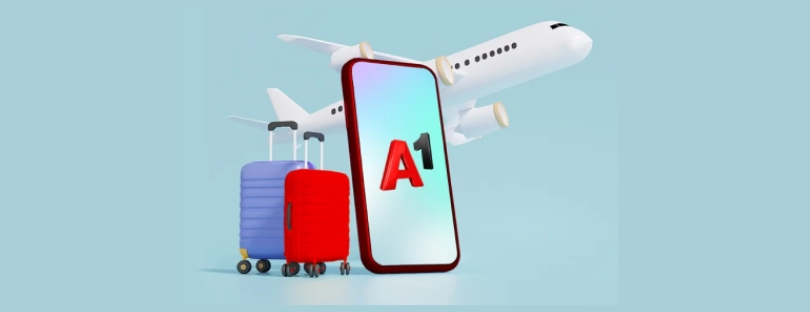
How travel to Europe has evolved 3 years after Brexit: from passport requirements to data roaming
Three years have passed since the UK left the EU. The UK ceased to be a member of the Union at 11 p.m. on January 31, 2020. Travel was never a key component of the Brexit dividends that were promised to voters in the 2016 referendum. With a “yes” vote, new border regulations would go into effect and British passport holders’ entitlement to live and work visa-free in EU nations would be terminated. brexit latest
Among the changes that came with the conclusion of the Brexit transition period on December 31, 2020, were lines for passport stamps, expensive paperwork when traveling with pets, and mobile phone roaming fees. This year will see the implementation of new border regulations for all non-EU people, further affecting UK travelers’ access to Europe. We describe the biggest changes.
Passport issue and expiry dates brexit latest
Holders of British passports are prohibited from entering any EU or Schengen Area nation with a passport that was issued more than ten years ago. Additionally, the passport needs to be valid for at least three months after the departure date.
Due to some travel service providers’ inaccurate information, this rule has caused misunderstandings. The two requirements listed above are independent of one another; for instance, you would be in compliance with EU regulations if your passport was granted on September 30, 2013, but it expires on December 30, 2023, and you had intended to travel to Spain for a week on September 23, 2023.
Passport stamps (and future checks)
After the Brexit transition period expires in January 2021, holders of British passports are only permitted to stay in the EU or the Schengen Area for 90 days out of every 180 days without a visa. Travelers from third countries must have their passports stamped upon entry and exit from countries in the EU or the Schengen Area in order to prove they are following this law. Brits experienced lengthy lines at Spanish airports during the summer’s busiest travel season for non-EU travelers.
By the end of 2023, the European Commission plans to launch its Entry/Exit System (EES). Passport stamping will be replaced by this. Instead, non-EU travelers will have their biometric information collected. After the system is implemented, it is anticipated that British passport holders will have their fingerprints and photos taken on their first trip to the EU. According to EU regulations, the data may be kept for up to three years.
The European Travel Information and Authorisation System will also debut this year (Etias). For admission into 30 nations, all holders of British passports will need to have an authorized Etias. The fee for candidates between the ages of 18 and 70 is €7 (£6.20). There is no application fee for applicants who are under 18 or over 70. The duration of an Etias is three years or until the expiration of the passport, whichever occurs first.
Visitors to the Republic of Ireland with UK passports won’t need an Etias.
Driving rules brexit latest
When driving within the EU, Britons must have their UK driver’s license with them. To travel and drive in the EU, Switzerland, Iceland, or Liechtenstein, UK drivers do not require an international driving permit (IDP).
If a driver has a paper license or a license that was granted in Gibraltar, Guernsey, Jersey, or the Isle of Man, they may need an IDP to drive in some EU nations and Norway. IDPs cost £5.50 each.
When visiting Ireland, those holding UK driving licenses do not require an IDP.
UK, not GB, will be displayed on the national identification sticker for UK-registered vehicles traveling within the EU as of September 2021. This could be added as a separate sticker or included on a license plate beside the Union Flag. A UK sticker is required for vehicles that do not have a UK identifier built into their number plate. The use of GB stickers has ended.
No matter what is on your license plate, if you are in Spain, Cyprus, or Malta, you must display a UK sticker. When bringing a car into the EU, UK drivers need have their vehicle logbook (V5C) or a VE103 to prove they have permission to drive a rented or leased automobile overseas.
Pet passports
The cost of taking your pet on a trip to the EU has increased. For British citizens to travel with their pets to any nation in the European Union, they must possess an Animal Health Certificate (AHC). The certificate has to be issued no later than 10 days before to the trip.
Getting an appointment within 10 days of travel to the EU is required in order to meet the deadline for obtaining an AHC. Additionally, your pet must be microchipped, up-to-date on vaccinations, and treated for worms, all of which are specified on the certificate, in order to enter the EU.
AHCs must be provided by an authorized veterinarian and are good for a roundtrip within four months. A certificate may cost anywhere between £100 and £300. A certificate can have up to five pets added to it, and each additional pet costs about £50.
There are also restrictions for bringing a pet back to the UK from the EU. Before you travel to Great Britain, your dog must receive tapeworm treatment from a veterinarian, which cannot take more than five days. Additionally, they must note the procedure in your pet’s AHC or passport. You must record rabies and tapeworm treatments that each pet has received.
See gov.uk for more information.
Health insurance brexit latest
UK visitors must have one of the following when they travel to the EU, Norway, Iceland, Liechtenstein, or Switzerland:
- A UK Global Health Insurance Card (GHIC)
- A European Health Insurance Card (EHIC)
In addition to travel insurance with healthcare coverage, these are required. There are differences in the healthcare systems of different nations, and in some, you must pay for medical services. A GHIC enables you to receive medically necessary healthcare in Europe at a discounted rate or even for free. In-date EHIC holders in the UK do not need to apply for a GHIC.
Both cards are valid when travelling to an EU country or, if you’re eligible, in Switzerland. You can no longer apply for a new EHIC, but applications for a GHIC are free and should be made through the NHS website.
Healthcare rules differ for visits to Spain orbrexit latest
As mentioned above, holders of British passports are only permitted to stay in the EU or Schengen Area without a visa for a maximum of 90 days within any 180-day period. For Britons who had resided in an EU nation prior to the conclusion of the Brexit transition period, different rules apply. In order to stay in the EU for longer than 90 days at a time, holders of British passports who intend to relocate to an EU nation must get a work permit or another sort of visa. Some nations, like Greece, Portugal, and Spain, have or are creating visas designed for remote workers. The requirement for UK mobile providers to ensure surcharge-free roaming throughout the European Economic Area has been removed (EEA). This change was brought about by the end of the Brexit transition period. On June 30, 2022, further protections, such as the daily roaming cost cap, came to an end. Roaming fees for users visiting the EU have been reinstated by many large mobile phone networks. Sometimes, the fees are only imposed on more recent clients. In addition to other providers, Sky Mobile, Three, EE, Vodafone, Voxi, and Tesco Mobile have all reinstated roaming charges. Residents of the UK can now shop in the EU tax-free. Between EU nations, different spending thresholds must be met in order to receive a VAT refund. Travelers from the UK must demonstrate that they purchased the items in the EU and that they intend to use or consume them in their country of residency, which must be outside of the EU, in order to be eligible. Travelers from the UK are no longer permitted to bring as many duty-added goods as they like back from the EU. The unlimited allowances for bringing alcohol back from the EU were phased out during the Brexit transition period. Currently, UK citizens who are 18 or older are restricted to the following: In order to prevent delays at stations, the Eurostar Group recently disclosed that it was holding back hundreds of seats on each of its trains daily. It claimed that 30% fewer passengers were riding trains between London and Paris. According to Gwendoline Cazenave, CEO of Eurostar Group, congestion at stations were exacerbated by post-Brexit border checks and levels of border officers following Covid. The checks also involve getting the passport stamps that holders of British passports need to enter and exit the EU or the Schengen Zone. brexit latest There are 14 daily Eurostar connections between London and Paris; in 2019, there were 18.Roaming charges
Duty-free shopping
Eurostar services








